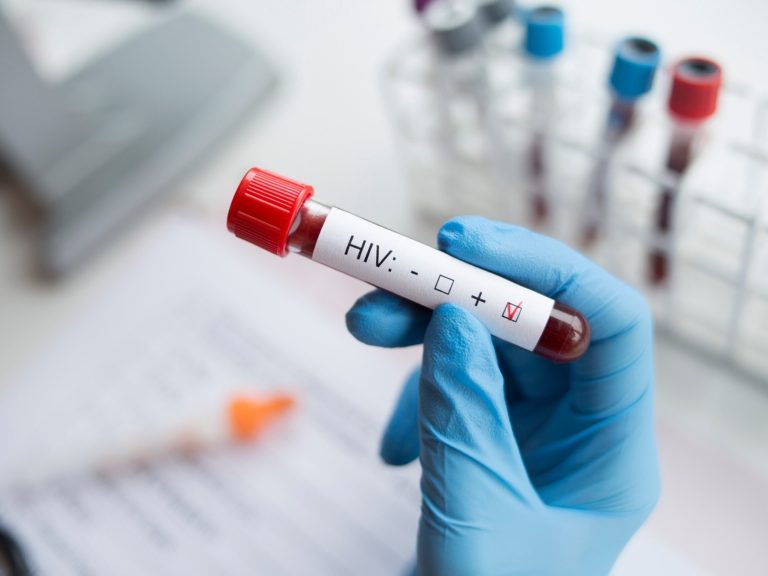Prof. Marcin Czech: Let’s create a vaccination calendar for adults

– There is a lot to be done – both in terms of deciding which vaccinations are important for the population, worth financing from public sources, and in terms of educating the public – says in an interview for “Wprost” Prof. Marcin Czech, epidemiologist, public health specialist, president of the Polish Pharmacoeconomic Society.
Although the Immunization Program covers both vaccinations for children and adults, so far there has been mainly talk about the mandatory vaccination schedule for children, and it has been very rarely emphasized that adults should also be vaccinated. Should a vaccination schedule for adults be created?
We talked mainly about children, because their vaccinations are a priority. Children suffered from many infectious diseases, which could cause death or serious complications, so interventions had to be initiated already in childhood. After the war, a huge problem throughout Europe was, among others: polio. Vaccination success was spectacular; Today, there are no cases of Heine-Medina disease in Poland, and a series of vaccinations provides lifelong protection. Similarly in the case of hepatitis B: vaccination in childhood eliminates the risk of developing hepatitis B in adulthood. It also prevented many cases of hepatitis and liver cancer. Many children died from infectious diseases; therefore, vaccinating children has been and continues to be a public health priority.
However, the demographics in Poland are changing – we live longer and longer, the society is aging. Many infectious diseases are coming back and becoming a problem in the senior population, such as pneumococcal infections. Infectious diseases – such as influenza – are also a problem for people of working age: not only due to complications, but also, for example, absence from work. There are also new vaccines that were not available before, e.g. against shingles or respiratory syncytial virus (RSV). Hence the idea of using vaccinations as an effective and safe method of primary prevention of infectious diseases also in adults. The impetus to raise the topic of adult vaccinations more broadly was the COVID-19 epidemic, which took the most tragic toll among the elderly and those suffering from other diseases.
In addition to influenza and COVID-19 – against which we should probably get vaccinated every year – other diseases that increasingly affect adults, especially the aging population, are also important, such as pneumococcal infections, infection with the virus that causes shingles or RSV infections.
Poles are still relatively reluctant to get vaccinated. How to convince people to vaccinate?
For me, the COVID-19 epidemic was a great opportunity for epidemiologists, public health specialists, infectious disease doctors, and virologists to instill knowledge about vaccinations in society. Unfortunately this did not happen; Unfortunately, part of society has greater trust in pseudo-celebrities and pro-epidemic movements. My conclusion as an epidemiologist and public health specialist is that society is not fully aware of the risk posed by infectious diseases such as COVID-19 or influenza. In more conscious societies, such as British, French and Scandinavian, there are much more vaccinated people.
The second factor is the issue of financial availability. I believe that vaccinations should be financed from public funds, as is currently the case with vaccination against human papillomavirus (HPV). Social awareness at various levels is necessary. Strong, properly directed social campaigns are necessary, tailor-made, appealing to the appropriate groups and speaking their language.
Meaning?
Specific people who are eligible should be vaccinated. For example, when we decide that it is important to vaccinate against pneumococci, herpes zoster, influenza, RSV, such information should be provided to older people, but also to senior homes, nursing homes, universities of the third age, etc.
Elderly people usually have regular visits to primary care physicians, who should find time for a preventive visit to ask the senior: “Have you considered vaccination against pneumococci, shingles or any other disease that may be dangerous for you?”, “Have you been vaccinated? against flu this season?”, “Can I vaccinate you?” There should be time for a conversation, to explain why such vaccination is important, to dispel doubts. Such conversations should be conducted by a family doctor, an internist or a doctor of another specialization to whom the elderly person comes for a visit.
There is a lot to do – both in terms of deciding which vaccinations are important for the population, worth financing from public sources, and in terms of educating the public. Of course, more financial resources are also necessary for educational campaigns and vaccinations themselves.
Should a team be established to develop a vaccination calendar for adults or vaccination recommendations for adults?
I think so. The Summary of Product Characteristics (SmPC) of vaccines provide indications as to who should be vaccinated with a given vaccine. There are also recommendations from the World Health Organization regarding vaccinations. However, it would be most justified to create and widely promote a vaccination calendar for adults or vaccination recommendations for adults, specifying age and risk factors (e.g. people suffering from diabetes, heart failure, cancer, immunological disorders, after transplants).
There are already advisory teams on vaccinations at the Minister of Health and the Chief Sanitary Inspectorate. Perhaps such teams should be expanded to include, for example, internists, geriatricians, and family physicians. The most important thing is that the experts’ recommendations are then implemented at the Ministry of Health. In my opinion, decisions regarding the financing of vaccinations should undergo a similar procedure to medicines in the case of reimbursement, i.e. the health technology assessment process.
Are vaccinations profitable from a pharmacoeconomic point of view? Could the vaccinations that would be included in the recommendations be included on free lists for people 65 and over?
I think so. Removing financial barriers is a condition for receiving these vaccines, especially for people aged 65 and over. Any vaccine, if it followed the same path as drugs, would have a chance to prove its cost effectiveness. However, in the case of vaccinations, the assessment is more difficult because the effect is delayed. They should certainly undergo health technology assessment procedures, be objectively assessed – just like medicines – and some should be recommended for the financing system from public sources – when it is effective, safe and profitable.
It is worth remembering that in the case of vaccinations we are dealing with a long production cycle. If we wanted to include vaccinations on the 65 plus list, such a decision would have to be made early enough, because producing vaccines for such a population will require time and planning. In my opinion, the flu vaccine should now be on the 65 plus list (just like it is on the 75 plus list). Gradually, there should also be room for other preparations. Of course, this requires additional financial resources, the so-called budgetary impacts must always be considered as part of the HTA process. However, let us remember that we are a society that often suffers from chronic diseases, the course of which may be exacerbated by infectious diseases.
At the same time, we are an increasingly richer society, and mature societies try to protect their citizens. Europe has no borders, diseases have no borders either, they move with people who travel. European efforts towards common provisions on vaccinations for adults are also worth emphasizing. In its pharmaceutical strategy, the European Union recommends paying attention to primary prevention, redefines the role of the European Center for Disease Prevention and Control, strives to ensure that European citizens have similar vaccination schedules and to reduce inequalities when it comes to health education.
Such an initiative is, among others, Vaccines Europe, where I have the pleasure of representing Poland. Europe is also trying to develop mechanisms to act more effectively in the event of another pandemic – both in terms of producing vaccines, distributing them, and reducing the health effects of the epidemic.






